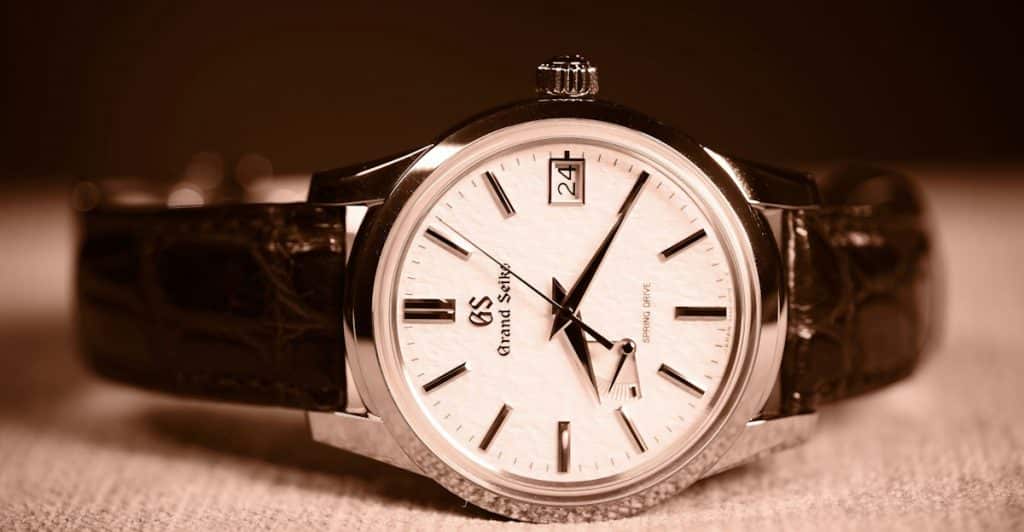
Luxury watches carry a lot of myths, some harmless, others seriously outdated. From assumptions about price to misconceptions about tech, many people still get it wrong. This slideshow breaks down the most common false beliefs about luxury timepieces. If you’re buying, collecting, or gifting, this is the reality check you need.
Myth #1 Only the Rich Can Afford Them

While some luxury watches cost a fortune, many respected brands offer models under $5,000. Options from Tudor, Oris, and Longines deliver craftsmanship without the extreme markup. With installment plans and growing resale options, luxury is now within reach. You don’t need billionaire status to own one.
Myth # 2 Mechanical Watches Are Obsolete

Mechanical watches aren’t outdated, they’re iconic. Their appeal lies in craftsmanship, heritage, and intricate engineering. While smartwatches offer convenience, mechanical pieces offer lasting value and personality. Many owners wear both for different reasons.
Myth # 3 Smartwatches Have Made Them Irrelevant

Luxury watches and smartwatches serve different purposes. A smartwatch might track your heart rate, but it won’t turn heads at dinner. Many men wear a tech wearable by day and switch to a mechanical piece at night. They coexist, not compete.
Myth # 4 Only Swiss Brands Are Worth It

Switzerland may lead in luxury watch heritage, but it’s not the only game in town. Brands from Japan (like Grand Seiko) and Germany (like Nomos) are also top tier. Quality and design matter more than the country of origin. Modern buyers are exploring globally.
Myth # 5 You Should Always Buy New

The pre-owned market is booming and legit. Certified sellers now offer verified, serviced watches with warranties. Going secondhand gives you access to rare or discontinued models. It’s smart shopping, not second-rate.
Myth # 6 Automatics Don’t Need Servicing

Even top tier automatic watches need maintenance. Over time, oils dry up and parts wear down, which affects accuracy. A service every 3 to 5 years keeps your investment running smoothly. Skipping it can shorten the life of your watch.
Myth # 7 Bigger Watches Look More Impressive

Oversized doesn’t mean luxurious. Watches that overwhelm your wrist often look cheap or flashy. A well proportioned case enhances your style and feels more intentional. Fit matters more than size.
Myth # 8 It’s Not Luxury Without Diamonds or Gold

Materials like stainless steel and titanium are just as respected in luxury circles. Some of the most sought after watches are simple in appearance. Design, movement, and rarity matter more than flash. Subtle can be serious status.
Myth # 9 Only Experts Care About Movements

Even casual buyers are learning to appreciate what’s under the dial. The movement determines performance, craftsmanship, and resale potential. You don’t need to be a watchmaker to admire good engineering. Learning the basics adds meaning to your purchase.
Myth # 10 Watches Don’t Hold Value Anymore

Not all watches depreciate. Limited edition models and certain brands can appreciate over time. With platforms like Chrono24, resale has become mainstream and profitable. You just need to know what you’re buying.
Myth # 11 You Shouldn’t Wear Them Every Day

Luxury watches are made to be worn. With scratch resistant crystals, water resistance, and solid construction, many models are daily drivers. They’re not too precious to use, just too special to waste. Function and fashion can go hand in hand.
Myth # 12 You Need a Huge Collection to Be Legit

A thoughtful two or three watch setup can outshine a giant drawer of random pieces. Collecting isn’t about quantity, it’s about connection, purpose, and wearability. Curate, don’t hoard. Your watches should reflect your lifestyle, not just your budget.
Myth # 13 Luxury Watches Are Always Low Tech

Luxury doesn’t mean anti-tech. TAG Heuer and Montblanc now offer hybrid or fully digital watches with premium build quality. Even mechanical watches have evolved through materials and micro precision. Modern luxury embraces innovation.
Myth # 14 The Industry Is Dying

On the contrary, the luxury watch market is thriving with younger buyers, global demand, and digital resale platforms. People value timelessness, durability, and personal expression, everything a luxury watch offers. The myths may be fading, but the watches aren’t going anywhere.






Ask Me Anything